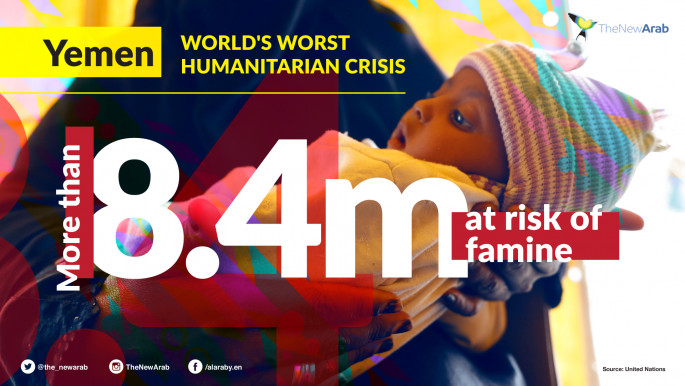Ten days of Saudi-led coalition fighting in Yemen kills 109 people
Jamie McGoldrick, the UN resident coordinator described the fighting as "futile and absurd" in an unusually direct criticism of the Saudi-led campaign against the Iran-backed Houthi rebels.
The US-backed Saudi-led coalition denied the charges, with Riyadh accusing McGoldrick of taking the Houthi side in the conflict, claiming the information lacked credibility.
On Tuesday, an airstrike hit a crowded market in the Al Hayma sub-district of Attazziah in the Taiz governorate. Reports cited by McGoldrick from the UN human rights office said 54 were killed and 32 injured.
According to the report, eight of the dead and six of the injured were children.
An airstrike on a farm in the district of Hodeidah governorate killed 14 on the same day.
"These incidents prove the complete disregard for human life that all parties, including the Saudi-led coalition, continue to show in this absurd war that has only resulted in the destruction of the country and the incommensurate suffering of its people, who are being punished as part of a futile military campaign by both sides," McGoldrick said.
He added, under international law, the warring sides must spare civilians and civilian infrastructure.
A spokesman for the Saudi-led coalition said he regretted the information that came in McGoldrick’s statement.
"This statement creates a continuous state of doubt about the information and data used by the United Nations, and challenges its credibility," the coalition spokesman said in a statement carried by Saudi state news agency SPA.
"As the coalition spokesman condemns this biased stand, he asserts the need for the United Nations to review the mechanism of humanitarian work and the competence of its employees working in Yemen and to monitor their performance," SPA added.
Saudi Arabia and its allies intervened in neighbouring Yemen in March 2015 to push back the rebels who control the capital Sanaa, in an attempt to restore the government of AbdRabbo Mansour Hadi to power.
But the military intervention – which has triggered widespread criticism from the international community – has left more than 10,000 people, most of which civilians, dead.
Recent reports suggest that Yemen has become the largest humanitarian crisis since the Second World War, where people are suffering from famine, health crises, infrastructure collapse and economic ruin, in chief due to the Saudi-led naval and air blockades on all of Yemen's ports.






 Follow the Middle East's top stories in English at The New Arab on Google News
Follow the Middle East's top stories in English at The New Arab on Google News
![Israeli forces ordered bombed Gaza's Jabalia, ordering residents to leave [Getty]](/sites/default/files/styles/image_330x185/public/2176418030.jpeg?h=a5f2f23a&itok=_YGZaP1z)

